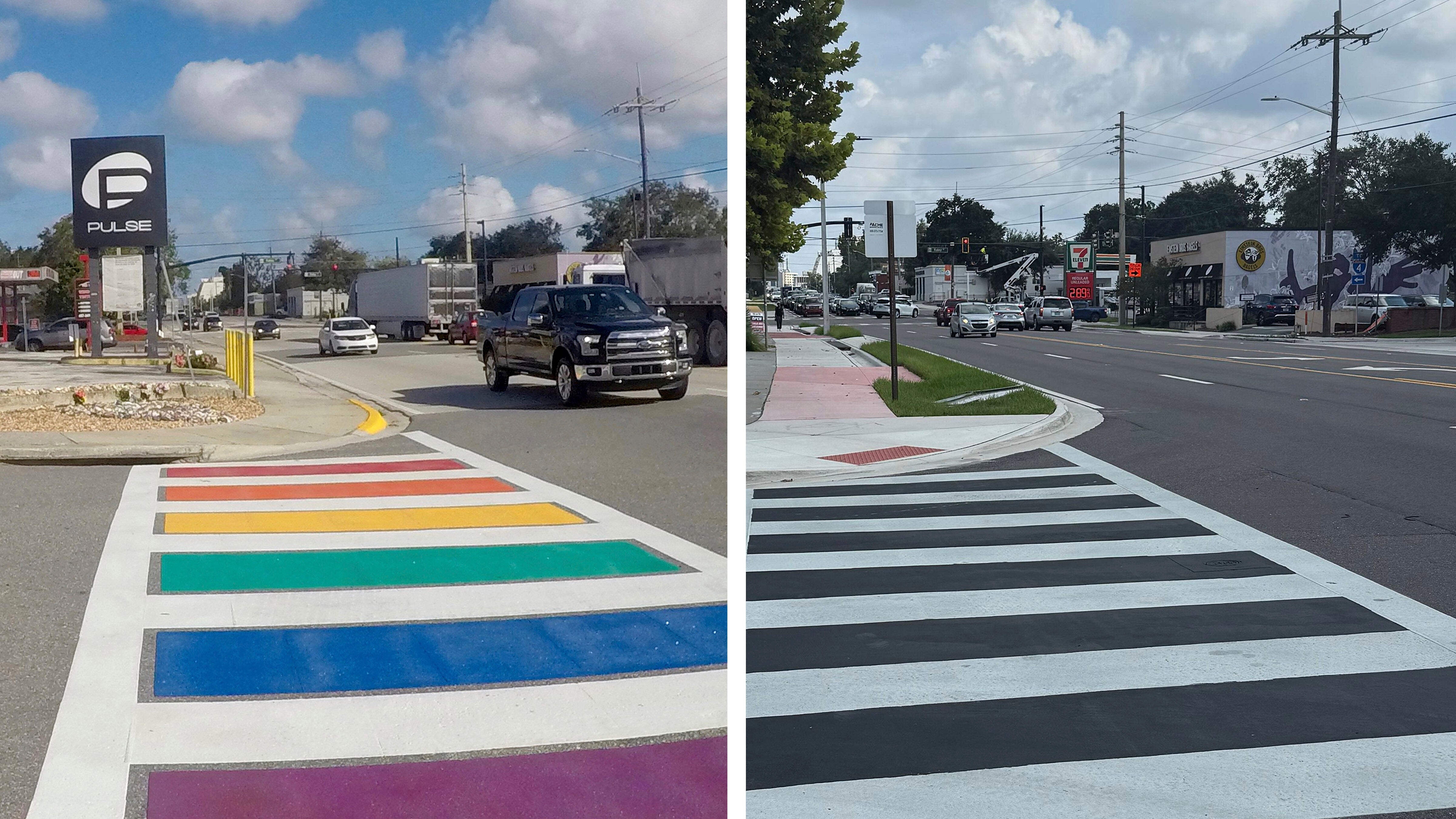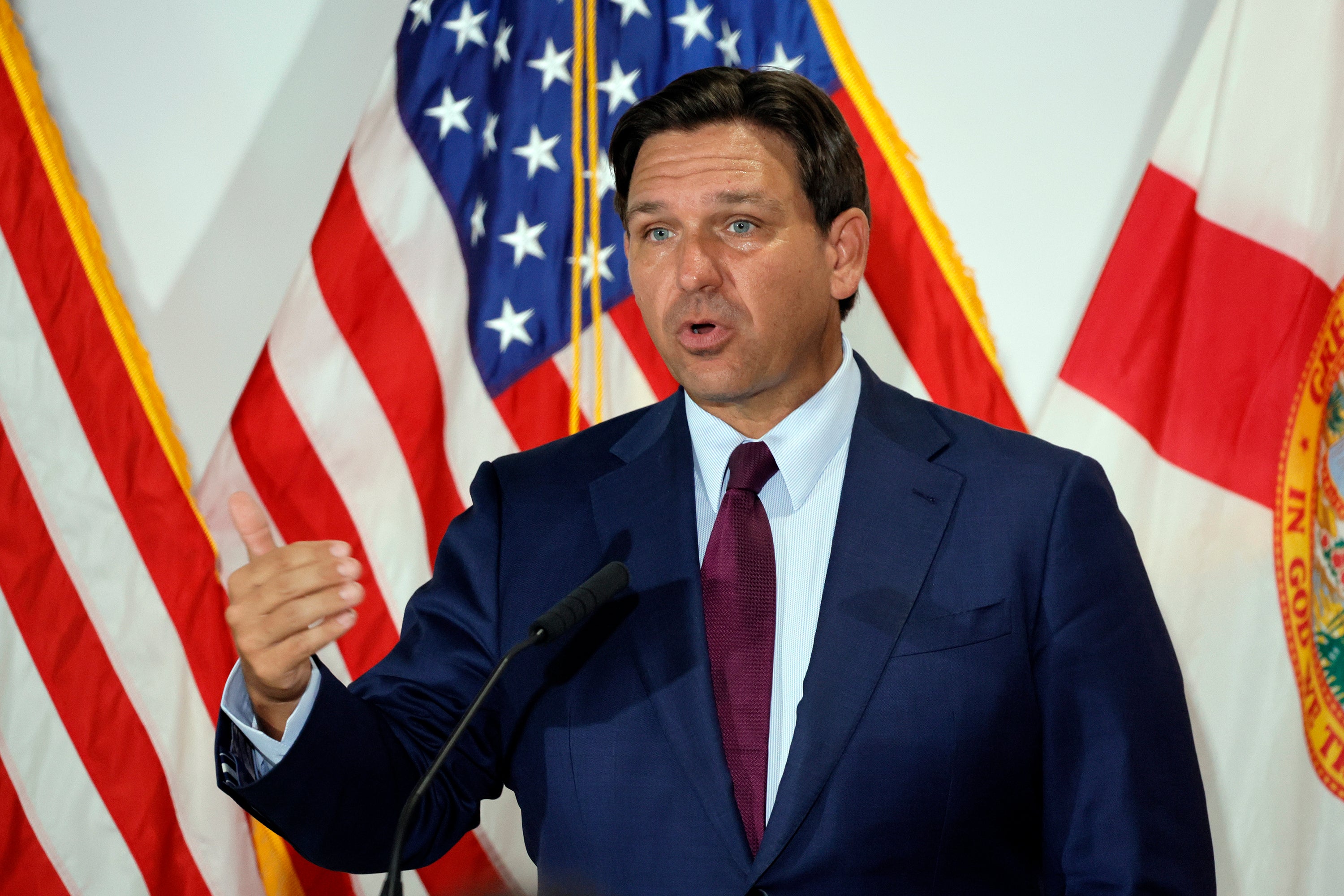Advocates have attempted to restore a rainbow crosswalk painted outside of Pulse nightclub, the site of the most deadly attacks against LGBTQ+ people in U.S. history, after it was removed at the behest of the Trump administration.
In the days after the multi-colored crosswalk resembling the LGBTQ+ Pride flag on Orlando’s Orange Avenue was paved over early Thursday, dozens have gathered at the site using bright chalk to recreate the rainbow.
The crosswalk was part of a larger memorial to the 49 people who were killed at the nightclub, as it hosted its popular “Latin Night” in June 2016. At the time, the ISIS-inspired attack marked the deadliest terrorist attack on U.S. soil since 911 and the deadliest mass shooting in modern American history.
Florida Highway troopers were positioned next to the mural on Sunday at South Orange Avenue and West Esther Street.
Law enforcement at the scene more than doubled on Sunday with three Orlando Police Department vehicles, a further three Orlando police patrol vehicles, two Florida Highway Patrol vehicles and one unmarked vehicle, according to Click Orlando.
Florida State Representative Anna Eskamani wrote on X Sunday that their role was to “threaten people with arrest who CHALK the road back to rainbow.”
Protestors have expressed outrage at the enhanced law enforcement presence and troopers’ demands to stay away from the Pulse crosswalk.
“My friends died here. That’s it. This is their memorial. This is theirs,” Robby Dodd told the outlet.
Jill Hakemian, a resident in neighboring Winter Park, said that authorities had been enforcing “made-up rules.”
“The police came over several times and made-up rules,” she said. “There were a couple of times when I asked questions and then they back down in the maybe two hours we’ve been here, they’ve changed what the rule is at least four times.”
The Pulse crosswalk was painted black and white almost two months after Trump’s Transportation Secretary Sean Duffy instructed states to “eliminate distractions” on public roads.
“Taxpayers expect their dollars to fund safe streets, not rainbow crosswalks,” he wrote on X on July 1. “Political banners have no place on public roads.”

Orlando Mayor Buddy Dyer said he was “devastated” to learn overnight that the iconic landmark had been painted over, denouncing the “callous” and “cruel political act.”
Eskamani said the crosswalk was “was never a political statement,” before adding: “But what is political, what is authoritative, and what is disrespectful to the 49 lives murdered and our entire community, is sneaking into the city in the middle of the night to literally erase a rainbow crosswalk that was originally established with [Florida’s] approval!”
State Senator Carlos Smith, who is gay, accused local officials of having “ripped the rainbow colors off of this city sidewalk,” adding that “there will be a rainbow mural nearby that is even bigger, queerer, and more colorful than they ever imagined.”
Florida Governor Ron DeSantis fired back on X Thursday that he would not allow state roads to be “commandeered for political purposes.” DeSantis’ administration has approved naming roads after Donald Trump and the late right-wing radio host Rush Limbaugh.

Responding to the governor on Friday, Brandon Wolf, a survivor of the shooting at Pulse, wrote on X that a “memorial to my dead brothers isn't political.”
The Florida Department of Transportation approved the crosswalk during former GOP Governor Rick Scott’s administration, two years before DeSantis was elected.
Its removal marks the latest action by DeSantis that appears at odds with Florida’s LGBTQ+ communities, including measures attempting to limit classroom discussion around sexual orientation and gender identity and banning gender-affirming care for minors.
As part of the 2025 Florida state budget, however, DeSantis included almost $395,000 toward building a permanent memorial to those killed at the nightclub.







